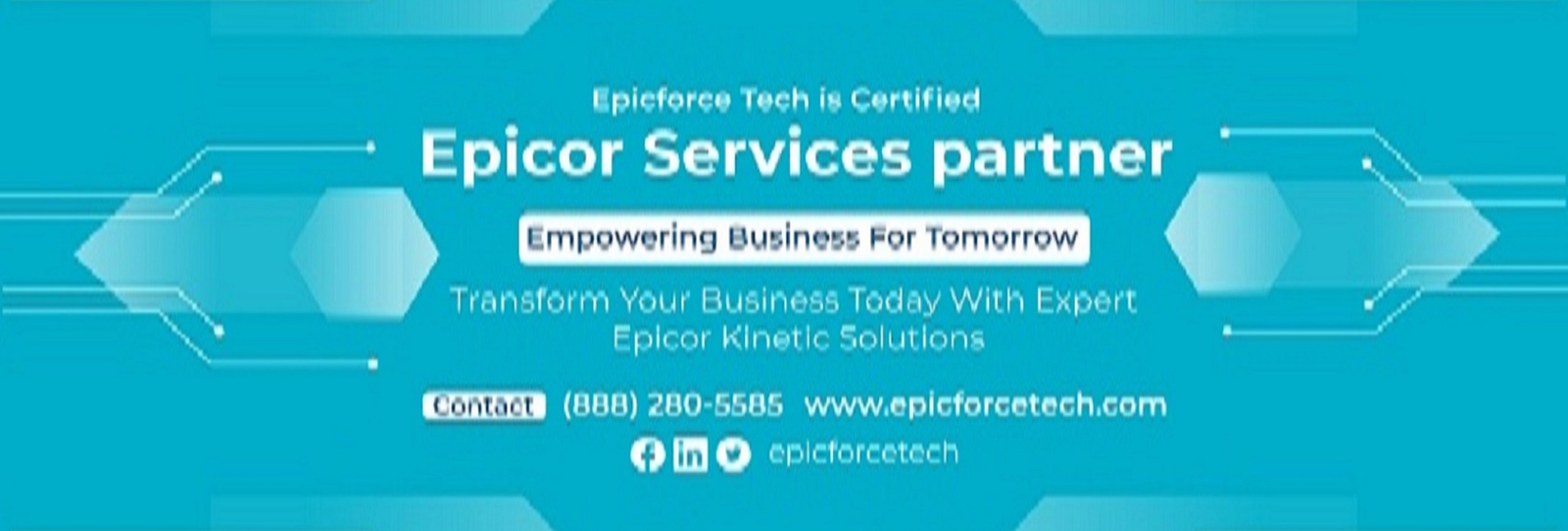
Rolling out ERP training while maintaining daily operations is a balancing act. Too much downtime, and you frustrate users. Too little training, and adoption suffers. At Epicforce Tech, we’ve helped manufacturing and distribution teams implement Epicor® training that boosts performance without halting production.
In this guide, you’ll learn:
-
Why operational efficiency and training don’t have to conflict
-
How to design training that aligns with real workflows
-
What training delivery methods work best in an ERP environment
-
Practical metrics to track training impact
1. The Cost of “Business-as-Usual” Training
ERP training often gets relegated to a conference room, disconnected from daily workflows. The result?
-
Operational interruptions: Teams block out hours or days, slowing critical processes
-
Low retention: Learning without context is quickly forgotten
-
Lack of momentum: And when users return, they’re behind on their “real” work
According to NetSuite, successful ERP training must be role-specific, on-the-job, and ongoing—not delivered as one-off events. A smarter approach is needed.
2. Align Training to Workflow: Tie Learning to Output
Instead of generic sessions, structure training around daily user workflows:
| Workflow | Training Activity |
|---|---|
| Order entry | Walk through creating, editing, and reviewing sales orders in Epicor® |
| Production planning | Use live MRP examples to show planning exceptions |
| Inventory adjustments | Practice count and correction using current warehouse scenarios |
| Financial closings | Show GL posting in the context of real month-end dates |
By pairing modules to actual tasks, users understand why they’re learning Epicor® actions, not just how. This approach keeps learning relevant and minimizes disruptions.
3. Employ Blended Delivery for Maximum Flexibility
Best-practice ERP training uses a mix of formats to minimize disruption:
-
Microlearning video shorts (5 to 7 minutes): Cover a key Epicor® task. Watch, perform, and pause.
-
On-demand resources: BAQ and workflow templates that reinforce lessons.
-
Hands-on sandbox activities: Real-world scenarios in isolated environments.
-
Peer learning groups: End-user champions share usage tips weekly.
-
Refresher sessions: 30-minute live Q&A after major Epicor® rollouts.
This blended model supports ongoing development while maintaining team productivity. If someone misses a session, they can catch up on their own schedule.
4. Make Training Practical: Build BAQs, Not Just Slides
Abstract lessons do not stick. Introduce training through useful tasks, such as:
-
Building a “Top 10 Backlog Orders” BAQ during the session
-
Simulating inventory corrections in sandbox environments
-
Creating dashboards using your organization’s KPIs
Hands-on, task-based training keeps attention high and makes learning relevant.
5. Keep It Lean: Microlearning and Just-in-Time Reinforcement
Microlearning boosts retention and reduces distraction. In practice:
-
Break training into short segments under 10 minutes
-
Use real transactions for demonstrations
-
Reinforce with quick tips like “BAQ Formula Fridays”
These small, ongoing reinforcements often drive more impact than full-day workshops.
6. Measure Training Success: Focus on Outcomes
To demonstrate ROI, track performance using metrics like:
-
User adoption rates: How many employees log in daily?
-
Support ticket volume: Are ERP-related requests declining?
-
Processing times: Is order entry or purchase order generation faster?
-
BAQ usage: Are more users building or running queries on their own?
These indicators help measure whether training is producing operational improvements.
7. Best Practices Checklist: Training Without Slowdowns
-
Align sessions to downtime or light-shift periods
-
Use live sandbox data, not outdated or theoretical examples
-
Focus training on tasks directly connected to the user’s job
-
Rotate delivery methods including video, sandbox, and group sessions
-
Communicate what’s coming next in the training journey
-
Gather feedback and improve content weekly
-
Connect training metrics to business outcomes
8. The Epicforce Tech Difference
Epicforce Tech has helped teams across industries train on Epicor® while preserving daily productivity. We emphasize learning that solves real problems within real systems. Our approach includes:
-
Building dashboards, BAQs, and workflows in sandbox environments
-
Answering real-time support requests during training
-
Tracking results like fewer help tickets and faster process completion times
Our training is always connected to measurable impact.
9. Ready to Build Custom Epicor® Training That Doesn’t Interrupt?
If your goal is to:
-
Align ERP training with day-to-day operations
-
Track training progress with metrics
-
Help your team learn without losing momentum
Call Epicforce Tech at (888) 280-5585
Email us at info@epicforcetech.com
Learn more at epicforcetech.com/epicor-training
Let’s work together to build a training program that fits your team’s pace and delivers long-term results.
Conclusion
You do not have to choose between operational productivity and ERP training. When done right, Epicor® training builds long-term capabilities without slowing daily workflows. Use blended delivery, real-world context, microlearning, and metrics to ensure adoption and performance.
Epicforce Tech is here to guide you through a training process that delivers value, improves efficiency, and sets your users up for success. Reach out to start building your Epicor® training strategy today.


